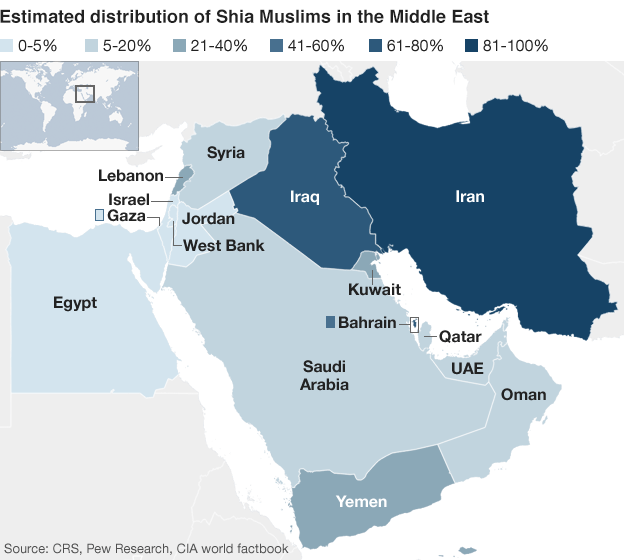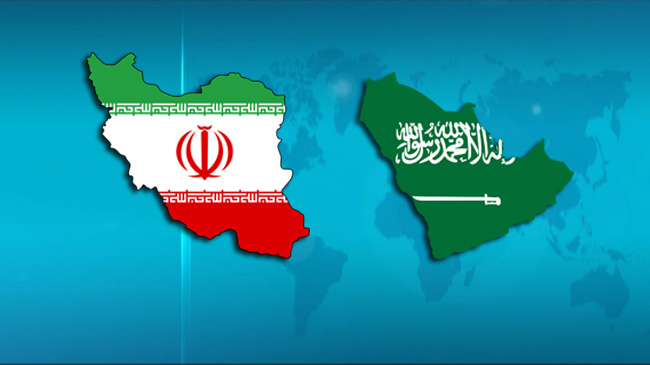On Saturday, Saudi-Arabia executed 47 people for their involvement in terrorist attacks orchestrated by al-Qaeda during the years of 2003-06; one of these people included the celebrated Shia cleric Sheikh Nimr al-Nimr. In retaliation, the Saudi embassy in Tehran was set ablaze and today Bahrain, which is governed under a Sunni monarchy but has a majority Shia population, gave Iranian diplomats 48 hours to leave the country.
These inflammations in Saudi-Iranian relations have triggered a 1,000 year old political wound between the Sunnis and Shia to gangrene- at the unfortunate time of great hostility in the Middle East. This hostility, which is rooted in religious differences, caused the sectarian dispute of Islam to permeate the political arena- resulting in many of the power-struggle conflicts we see today.
-
Who are the Sunni and Shia?
1,400 years ago, after the death of the prophet Muhammad, Muslims were split at the issue of who should succeed him. Some Muslims believed that the process of selecting a successor or ‘Caliph’ should be the traditional ‘Sunna’ method supported by the writings of the Qur’an (Sunnis); while others believed that Muhammad had already divinely and legitimately selected his cousin, Ali to be his heir (Shia). Sunni Muslims make up approximately 85-90% of Muslims, while Shia occupy 10% of the Muslim population. Shia countries such as Iran have reported of great structural marginalisation and discrimination caused by the Sunni governments in their countries.


-
What do these recent events hold in store for Global and Middle Eastern Relations?
Divisions on Syria can be reduced to the fact that Iran (majority Shia) wants its ally, President Assad, to remain in power, while Saudi Arabia (Majority Sunni) want him to step down, or be removed by force. However, both governments believe in supporting forces on the ground to eliminate the power of IS, a small minority Saudi-Sunni terrorist organisation.
The existence of IS in Syria and Yemen have exacerbated already dangerously tenuous relations in the countries, which will not be easily extinguished if hostile Iranian-Saudi relations continue. The egotistical struggle masquerading as ideological and religious defence, which have seen both sides stick their heels into the ground to prevent the other gaining influence, resources, or territory is one that will only prevent global foreign action in Syria.
I previously disputed Cameron’s claims that we have a 70,000-strong force of moderate fighters on the ground to combat IS, on the grounds that it is not a united force. It is not a force that can be relied on to wholly focus on the fight against IS, especially with their prior commitments to more important things like…err…fighting each other or Assad. The West is also guilty of condemning Iranian actions, where there is at least some form of democracy, while simultaneously shaking hands, sending arms, and kissing largely undemocratic Saudi ass while turning a blind eye.
Here’s a notion: Peace in the Middle East would come about more easily if the region were governed by women.
–Roger Ebert
